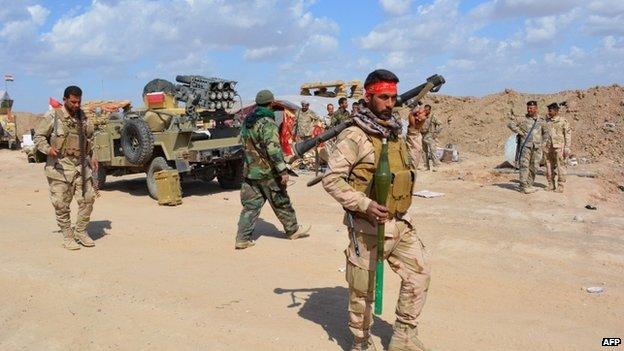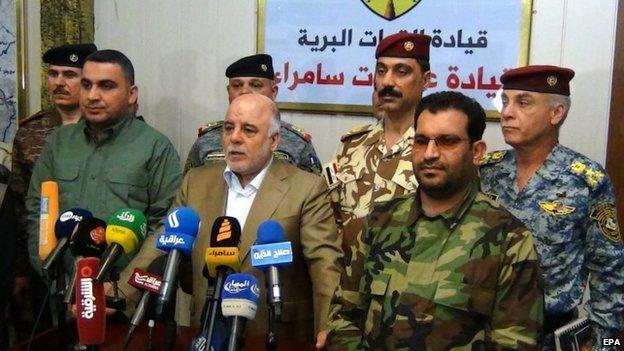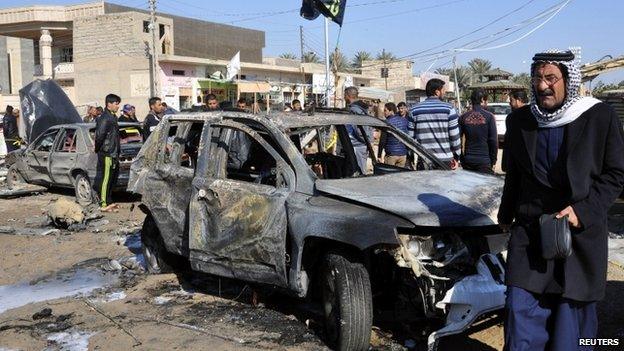Tikrit campaign key to rolling back IS advance
- Published

A force of about 30,000 troops and militia had been assembled for the assault on Tikrit
The offensive to recapture Tikrit was announced with some fanfare by the Iraqi authorities, and state television carried footage of rockets being fired as the campaign got under way.
There were early claims of rapid advances being made as government forces pushed towards Tikrit from several directions.
But previous assaults on the militants there have been beaten back despite claims of victory by the state forces, so it will be some time before the fate of this latest offensive becomes clear.
It is a battle of great importance. Both the Iraqi prime minister and the Americans have been heralding an even more significant push in the coming months to recapture the biggest city in northern Iraq, Mosul, which also fell to IS last June.
That campaign would be thrown into doubt if the government fails at Tikrit, which controls the strategic highway linking the south with the north.
The attack on Tikrit was inaugurated by Prime Minister Haider al-Abadi who addressed his top officers on the eve of battle.

Haider al-Abadi urged troops to protect civilians during the military campaign
"Today we are launching a major and important campaign to liberate the citizens of Salahuddin province, which includes Tikrit and other areas, from the Islamic State terrorists," he said.
"So, I call upon you and all other commanders to deal with citizens well. We should protect the citizens and their properties."
That underlined one of the concerns raised by this thrust into mainly Sunni terrain.
Because the Iraqi army collapsed last June and is still shaky, much of the fighting is being done by Shia militias, backed by Iran.
They are thirsting for revenge for atrocities carried out by IS in June, when hundreds of Shia recruits were massacred.
In a neighbouring province where Sunni areas have been overrun by a similar combination of pro-government forces, there have been accusations of revenge killings and abuses inflicted on the Sunni population by the Shia militias.
The prime minister may be urging restraint but there is a question mark over how much control he has over the forces on the ground.
Their behaviour in Tikrit, if they win, will have major implications for what happens in Mosul and other mainly Sunni areas occupied by IS.

Tit-for-tat attacks by Sunni and Shia militants in Iraq have claimed hundreds of lives